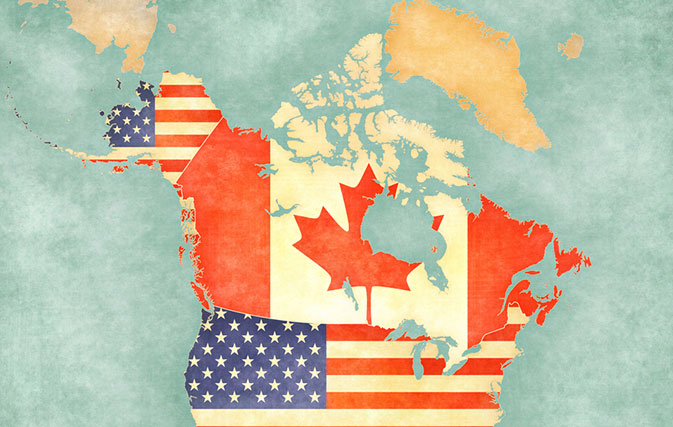TORONTO — When the United States reopens its borders to travellers on Nov. 8, there’ll be different rules for those flying to the country and driving into it.
The main difference? COVID-19 pre-departure testing.
Effective 12:01 a.m. ET on Nov. 8, non-U.S. citizens will be required to be fully vaccinated and provide proof of their vaccination status when flying to the United States. Children under the age of 18 are exempt.
Fully vaccinated air passengers ages two years or older, regardless of citizenship, will also be required to show a negative pre-departure COVID-19 viral test taken within three days of travel to the United States, or present documentation of having recovered from COVID-19 in the last 90 days. Those who are not fully vaccinated will need to take a viral test taken no more than one day before departing to the U.S.
A viral test can either be an antigen test (approximately $40) or a nucleic acid amplification test (NAAT), like the more costly RT-PCR test (approximately $200).
While travellers flying to the U.S. will be required to take the extra step of pre-departure testing, those crossing from Canada into the country by land or ferry need only be required to be fully vaccinated against COVID-19. (Showing proof of vaccination will not necessarily be required unless they are referred by U.S. Customs and Border Patrol for secondary inspections.) These land travellers will not be required to show proof of a recent negative COVID-19 test.
But this doesn’t mean things won’t change ahead of the Nov. 8 reopening date. According to U.S. border authorities, further clarification about testing requirements for those crossing the land border is expected in the next few days. Although it’s not yet clear whether mandatory testing will also be implemented at the land border in time for the Nov. 8 opening, officials have hinted that land border rules will uphold the advice given by the CDC.
Whether the United States will update its land border testing rules or not, It’s important to note that in order to return to Canada, Canadians – those arriving by air and land – are still required to show proof of a negative COVID-19 molecular test taken within 72 hours of arrival.
“We don’t expect the process to hinder travel to the United States”
Travelweek checked in with Brand USA’s Aaron Wodin-Schwartz, Senior Vice President, Public Affairs, to get his take on the United States’ pending reopening and testing protocols.
When asked whether he thinks testing should still be required for those already fully vaccinated, he says: “We trust our public health authorities made these new determinations based on what the science indicated to provide for the safety of Americans and our international visitors. In the coming days, we trust the health experts, government officials and industry professionals to develop the safest way to open the land border, and we don’t expect the process to hinder travel to the United States.”
Wodin-Schwartz notes that Brand USA’s role is to communicate U.S. travel policies and market the USA as a travel destination, and that this updated policy puts in place an international travel system that is stringent, consistent across the globe and guided by public health.
“In fact,” he adds, “we expect the new measures will spark significant interest in travel and build the critical traveller confidence needed for a robust recovery of the tourism sector. We know our Canadian friends have been patiently waiting to travel back to the United States and we look forward to welcoming them with open arms.”
“The winter travel season should see a boost”
Despite the differing rules, one thing that everyone can agree on is the positive impact the land border reopening will have on the winter travel season.
Says Wodin-Schwartz: “The reopening of all borders is amazing news. Our ability to travel throughout the United States has proven that the protocols in place will allow us to start welcoming our international travellers back.
“Based on the search traffic and anecdotal evidence, we know there is a strong desire to book travel to the United States as soon as possible. We expect there to be an immediate impact so the winter travel season should see a boost.”
Florida, which prior to the pandemic welcomed an annual 1.5 million Canadians by car, is expecting visitation numbers from Canada to be “through the roof” this winter following a near 75% increase in Q2 this year over 2020, says Dana Young, VISIT FLORIDA President and CEO.
“Canada is Florida’s #1 international market and we are absolutely thrilled that the U.S. land border will reopen to Canadians next month,” she tells Travelweek. “The drive market from Canada is vitally important to Florida tourism. VISIT FLORIDA has been working nonstop to continue this momentum and ensure that Florida is at the top of every Canadian traveller’s list when borders reopen.
“We have greatly missed our friends from up north and are looking forward to welcoming all Canadian visitors to experience everything that’s been waiting for them in the Sunshine State.”


